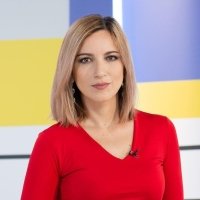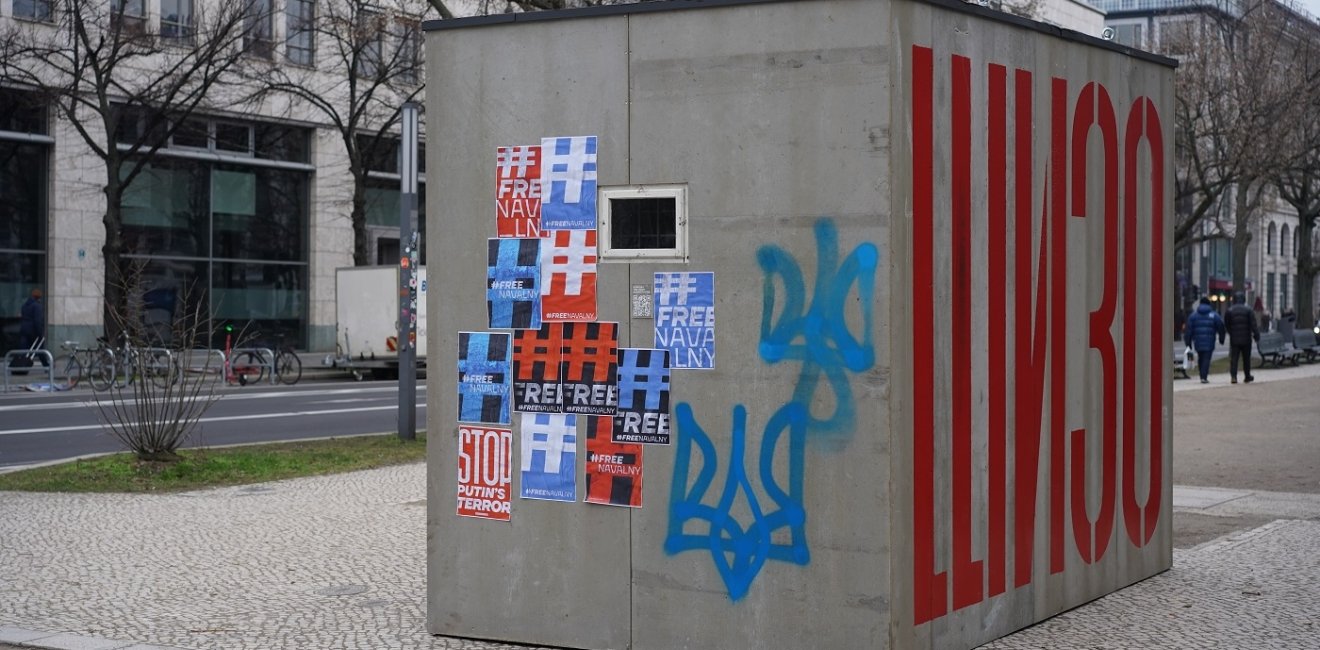
A blog of the Kennan Institute
Russia’s independent political and media community is facing its most significant crisis since Moscow launched its full-scale invasion of Ukraine two and a half years ago. One faction within the opposition has accused another of orchestrating a criminal attack.
Alexei Navalny’s Anti-Corruption Foundation (ACF) recently published an investigative report, accompanied by a documentary (with English subtitles), alleging that Leonid Nevzlin, a prominent opposition figure, was behind a physical assault of Leonid Volkov, Navalny’s longtime associate and former CEO of ACF. If proven true, these claims could deepen the divisions within the opposition movement.
The ACF bases its claims on a cache of correspondence retrieved from a messaging app. According to the ACF, the messages show Nevzlin instructing his associate to organize an attack on Volkov, with the ultimate goal of forcing him back to Russia—to an inevitable arrest. This associate was detained on Thursday in Poland, reports say.
The ACF states that the correspondence was provided by a Moscow fixer with ties to both Russia’s security agencies and several opposition figures, including former oligarch Mikhail Khodorkovsky.
The ACF invited respected investigative journalists to review the data and verify the authenticity of the correspondence. Their conclusion: the exchange belongs to Nevzlin. A week earlier, the Russian propaganda channel RT had released a story based on the same correspondence, reaching the same conclusion—that Nevzlin had ordered the attack on Volkov. Both the ACF and RT received the information from the same source.
Opposition Divided
The ACF’s decision to go public with these allegations has divided the opposition. Some have accepted the story and are calling for a full police investigation. Others, however, believe that the publication is the ACF’s attempt to discredit its competitors. The relationship between the two opposition groups has long been fraught, so it is natural to wonder if this could be an effort by Navalny’s team to undermine a competitor. Nevzlin dismissed the film as “a fabricated leak orchestrated in Moscow.”
While explaining who Nevzlin is to her audience, Maria Pevchikh, the ACF’s current head, also mentions Mikhail Khodorkovsky—now an exiled politician and formerly the billionaire head of Yukos, a large oil company he acquired in the 1990s through controversial deals with the Kremlin. Khodorkovsky and Nevzlin have been close partners since the 1980s, though Khodorkovsky’s involvement in this particular incident remains unconfirmed.
Why bring him up, then? “Well, Nevzlin simply does not exist without Khodorkovsky,” Pevchikh says, in answer to my question on the Dozhd TV channel. According to her, business ties between the two longtime friends persist. If true, does this imply that Khodorkovsky agrees with Nevzlin on everything? Or worse, that he is complicit in the alleged crime?
Reacting to the publication Khodorkovsky said that he will treat the allegations as an elaborate Kremlin-backed hoax until it is proven otherwise. “ACF consistently create a false impression that they have facts about my receipt of reliable information about the crime and its concealment from law enforcement agencies. This is not true,” the businessman said in his second statement on the matter.
Disbelief and Reflection
I spoke with several individuals closely involved in Russia-related issues in Europe, as well as with European politicians. They agreed to answer my questions on the condition of anonymity. One of my sources believes the incident is a blow to the entire opposition, including the ACF, inflicted by Putin’s security services.
“This is a scheme the security forces devised long ago. The correspondence is hacked, it’s completely genuine, but then a few incriminating phrases are inserted, and suddenly the person is a criminal,” my source explained. “Nevzlin is very emotional and may make threats, but that’s just him letting off steam. He’s always been like this, but nothing has ever actually happened to anyone.”
My source explained that it will likely be impossible to retrieve the original correspondence from Nevzlin, as he frequently changes communication methods, switching numbers, devices, and using auto-deletion settings in messaging apps for security reasons. “He was outplayed and set up,” my source believes. “And no one will be able to prove anything in court.”
However, these are just assumptions, as the source does not have specific information. Like many European politicians, he sees the main issue as the ACF’s decision to “create a scandal instead of going to the police.” That said, the ACF did file a report with the police.
Recently, a special rapporteur on Russian democratic forces was elected in the Parliamentary Assembly of the Council of Europe. Eric Kross now serves as the point of contact between the Russian opposition and one of Europe’s key institutions. His role is to support civil society. Kross's commentary on the ACF’s film, however, was unexpectedly harsh.
“The video published by the ACF, claiming to have new evidence in the case, should be reviewed by the relevant authorities” because “Replacing these processes with amateur investigations and attempts at public judgment may be necessary in totalitarian environments, such as in today's Russian Federation,” Kross posted on X. “However, in democratic societies, this undermines the judicial system and can lead to a dangerous culture of accusations without due process. The ACF, as an organization very familiar with the Putin regime’s methods of disinformation and use of ‘kompromat’ against its opponents, might find it challenging to trust the law enforcement agencies of democracies. However, for the sake of Russia’s future, it must overcome this reflex.”
One member of the European Parliament told me that the Nevzlin story does not bode well for those who have been defending Russians since the start of the war. Moreover, in Vilnius, where Alexei Navalny’s associates live and work, concerns about whether their presence poses a risk to ordinary Lithuanians have resurfaced. This debate is expected to intensify with the upcoming elections in Lithuania in October. However, my source emphasized that the scandal surrounding the attack on Volkov should not distract from the primary threat, which still comes from the Kremlin.
Opposition Has a Lot at Stake
Lithuanian President Gitanas Nausėda made a significant statement: “We will always support the opposition, as it is fighting the Putin regime, and we will carefully consider all claims about who organized what. Lithuania will remain a place where the free opposition can operate safely, and this is our duty as a civilized democratic state.”
It is clear that we have yet to see the full consequences of this story. Further developments are undoubtedly ahead.
As for those joking that Putin is celebrating this scandal with champagne: yes, Putin likely finds the Nevzlin situation to his advantage. Following the murder of Alexei Navalny, the Russian opposition—already weakened by exile—remains without a clear leader. Perhaps such a leader is not needed, but many, out of habit, continue to seek a figure they can rally around. So far, that person has not emerged. And with no optimistic news coming from Russia, it is clear that Putin remains in a strong position.
However, the Moscow regime’s resilience does not mean that Russia’s independent journalists and activists should abandon their efforts. In the long run, Putin’s reputation is already beyond repair. Opposition figures, activists, and public leaders have much more at stake—and much more to lose.
The opinions expressed in this article are those solely of the author and do not reflect the views of the Kennan Institute.
Author


Kennan Institute
The Kennan Institute is the premier US center for advanced research on Eurasia and the oldest and largest regional program at the Woodrow Wilson International Center for Scholars. The Kennan Institute is committed to improving American understanding of Russia, Ukraine, Central Asia, the South Caucasus, and the surrounding region through research and exchange. Read more

Explore More in The Russia File
Browse The Russia File
Chechnya as a Model of Modern Russia

Russia’s Indigenous Communities and the War in Ukraine

Gas and Power in a Changing US–Russia Relationship

